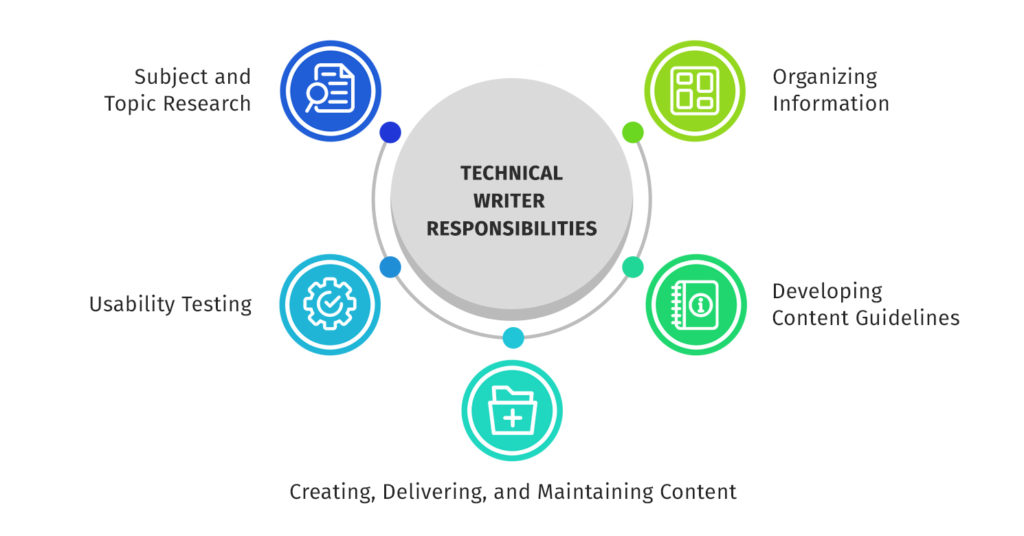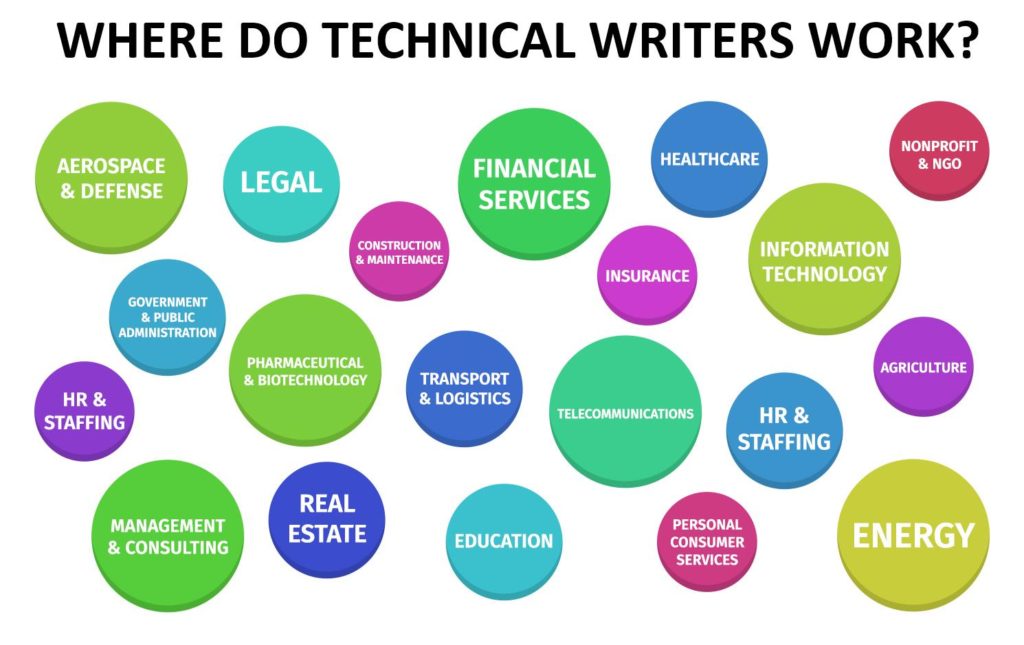Our reviewers evaluate career opinion pieces independently. Learn how we stay transparent, our methodology, and tell us about anything we missed.

If I had to describe technical writing in one sentence, it’s this: I take complicated stuff and make it usable for the person who needs it.
That “person” might be a developer integrating an API, an end user trying to finish a task, an internal team following a process guide, or a regulated organization that needs controlled documentation that can survive audits. The work isn’t just writing, it’s information design, collaboration, and accuracy habits that keep content trustworthy after the product changes.
Technical writer responsibilities vary by industry, but the core loop stays consistent: gather accurate information, shape it into a usable structure, publish it in the right place, and keep it current.
Most technical writers create and maintain some mix of product documentation: online docs, help centers, knowledge base articles, how-to guides, end user guides, and user manuals. In software teams, that also includes release posts or release notes that explain what changed (and what users should do next).
What matters is the outcome: users can complete tasks without getting stuck, and support teams aren’t answering the same “where do I click?” question 40 times a day.
Technical writers live inside cross-functional teams. You’ll collaborate with subject matter experts, engineers, product managers, support, and stakeholders to gather project requirements, validate edge cases, and ship docs through review cycles.
This is one of the least understood parts of the job. A lot of your value comes from being the person who can translate “engineering truth” into “user clarity” without mangling either one.
Editing and proofreading aren’t “polish.” They’re core job functions, especially in high-stakes documentation.
You’re responsible for clarity, consistency, terminology, and making sure the doc reflects what the product does. Many teams also expect writers to follow (or help create) style guides so docs don’t feel like they were written by 12 different people with 12 different voices.
Not every role includes heavy design work, but many technical writers use visuals to make instructions easier to follow.
That can be as simple as clean screenshots and callouts, or as complex as diagrams and illustrations that explain workflows. The goal is always the same: reduce cognitive load.
A modern technical writer usually owns more than a Word document. You’ll publish and maintain content in online systems, help centers, documentation sites, internal wikis, and CMS platforms. You’ll also spend time on “docs maintenance,” which is the unglamorous work of keeping content accurate after releases, removing dead paths, and making sure pages remain findable.
In stronger orgs, documentation isn’t just “published.” It’s improved based on evidence. That might mean usability studies, reviewing user feedback, scanning support trends, or looking at what people search for in the doc site. Even lightweight feedback loops can dramatically improve documentation quality over time.
Some technical writers write UI text (or partner with UX writers/content designers who do). This shows up in onboarding flows, tooltips, error messages, and in-product guidance. Small words that reduce confusion inside the product itself.

Tool stacks differ by company, but in 2026 most technical writers touch a few major categories. The “right” tool isn’t the point, the workflow is.
You might draft in Google Docs or Microsoft Word, or you might use help authoring tools like Adobe FrameMaker or ClickHelp for structured outputs and controlled publishing. The common skill is being comfortable with documentation authoring workflows: draft, review, approve, publish, update.
Many teams publish through a CMS, documentation platform, or internal wiki. Writers often manage navigation, page structure, and documentation repositories so content stays organized and searchable.
Software teams increasingly treat docs like code: written in markdown, stored in repositories, and reviewed through pull requests. In that environment, being comfortable with a docs-as-code workflow and basic version control systems makes you dramatically easier to integrate into engineering teams.
You don’t need to be a developer, but you should be able to collaborate in the same system developers already use.
Not every technical writer touches DevOps tools directly, but many writers operate close to release workflows: tickets, branches, build notes, and release schedules. Even a basic understanding of how changes move from “work in progress” to “shipped” helps you write more accurate docs and time updates correctly.
Some jobs expect more technical depth than others. For developer documentation roles, you may be expected to read (and occasionally write) code snippets, understand APIs, and work comfortably with technical terminology. For other roles, process documentation, manuals, training materials and technical literacy still matters, but it looks more like “I can learn systems quickly and ask smart questions.”
AI tools are increasingly part of the workflow, but they don’t replace the job. They can help you brainstorm structure, generate draft outlines, improve phrasing, and speed up rewrites. But accuracy, product truth, and style consistency still land on you, and that’s exactly what hiring teams want to hear when they ask about AI use.
Technical writers come from many backgrounds, but hiring teams usually look for the same foundations: writing clarity, research habits, collaboration ability, and enough technical comfort to stay accurate.
If you want a deeper skill breakdown (with examples), start with my guide on technical writing skills.
If you’re interested in learning more about the technical writing skills, roles, and path to landing your dream technical writing job, then check out our Technical Writing Certification Course.
“Technical writer” can mean very different things depending on level, domain, and whether the work is product-facing or compliance-heavy.
Entry-level writers typically support existing doc sets: updating pages, creating FAQs and how-to content, assisting with end user guides, and learning how review cycles work. You’ll still collaborate with SMEs, but you’re usually not the person designing the entire documentation system yet.
Intermediate writers are paid for ownership. You can take a documentation project end-to-end: define scope, draft, run reviews, publish, then maintain. This is also where your judgment improves. What to include, what to cut, what order users need, and what assumptions are safe.
Senior and principal writers are less “write the page” and more “design the system.” You might own information architecture, set style guide standards, improve documentation lifecycle processes, mentor writers, and coordinate cross-team documentation work. In regulated environments, this can include SOPs, controlled documentation, and change management expectations.
If you want a posting-ready breakdown by level (plus templates), check out technical writer job descriptions.
Technical writing shows up in offices, hybrid teams, and fully remote orgs. Your day-to-day quality of life usually depends less on where you sit and more on how mature the team’s documentation culture is.
Remote work is common, especially in software documentation fields but it changes the communication style. Async habits matter: clear questions, good written updates, disciplined review cycles, and tight alignment on what “done” means.
In-office roles can move faster in some environments, but they also come with more context switching and more “quick questions” that can derail deep work. Neither is automatically better. The best environment is the one where documentation is planned, not treated like a last-minute chore.
People break into technical writing through internships, entry-level roles, or adjacent positions like support, QA, engineering, teaching, or content writing. The hiring process often includes a writing test or a short doc exercise, because teams want proof of clarity and structure.
If you’re early-career, your portfolio matters more than your job title. Check out my guide on how to create a technical writer portfolio as your “proof engine.”
Technical writers tend to grow in one of three directions:
A lot of salary growth comes from scope: owning larger parts of the documentation lifecycle, reducing risk, and making teams faster.
This section is where I like using government data as the anchor, then layering in market signals.
The U.S. Bureau of Labor Statistics Technical Writers Page reports a median annual wage of $91,670 (May 2024). If you want a “current market snapshot,” the Indeed Technical Writer Salary Page reports $38.28 per hour on average in the U.S., updated January 16, 2026 (and includes a reported cash bonus estimate).
Those two numbers aren’t competing. They’re different lenses. BLS is a stable baseline; Indeed reflects recent job-posting data.
BLS projects 1% employment growth from 2024 to 2034 for technical writers (slower than average), but still estimates about 4,500 openings per year on average. That “openings” number matters because it includes people moving roles and leaving the occupation, not just new jobs created.
If you want more regional projection detail by state, Projections Central Long-Term Occupational Projections is a useful tool for comparing demand across regions.
Even with remote work, geographic location still influences salary bands. For a state/metro breakdown of wages and employment, BLS’s Occupational Employment and Wage Statistics (OEWS) Page for Technical Writers is the source I trust most for regional comparisons (it includes pay, employment estimates, and concentration data).
Technical writers work across industries, but BLS notes the occupation is concentrated in areas like computer-related and professional/scientific/technical industries. Industry matters because it changes stakes: regulated documentation, complex systems, and high-impact product documentation often come with higher pay bands.
Freelance technical writers exist in every niche, but the economics are different.
Full-time roles tend to be more stable (and often come with benefits). Freelance income can be higher on paper, but it fluctuates with project availability, and you’re responsible for your own pipeline, downtime, and business costs.
The key takeaway: freelancing can be a great path, but it rewards specialization and consistency more than “general writing ability.”
If you want deeper numbers and salary breakdowns by level and location, check out my guide on technical writer salaries.

For job seekers, aligning your materials with employer expectations is key. Start by refining your technical writer resume and optimizing your technical writer LinkedIn profile. Prepare for interviews using technical writer interview questions.
Technical writing is about making complex information clear and actionable for the people who need it. Whether you’re working on API docs, user manuals, or microcopy, your goal is to bridge the gap between systems and users.
This career offers opportunities to specialize, lead, and make an impact. Focus on building a portfolio, improving collaboration, and staying adaptable to tools and workflows to thrive as a technical writer.
Here I answer the most frequently asked questions about technical writers.
Many employers list a bachelor’s degree, but in practice, strong writing samples, a portfolio, and relevant experience (even from adjacent roles) can matter more than your major, especially in software documentation roles. BLS notes technical writers typically need a bachelor’s degree to enter the occupation.
Common deliverables include product documentation, knowledge base articles, end user guides, user manuals, FAQs, release notes, training materials, process guides, and sometimes UI text.
If you like clarity, systems, and collaboration, and you’re willing to keep learning tools and workflows, it can be a strong path. BLS projects modest growth but steady annual openings, and pay is typically higher than many general writing roles.
Get the weekly newsletter keeping 23,000+ technical writers in the loop.
Get certified in technical writing skills.









Get our #1 industry rated weekly technical writing reads newsletter.